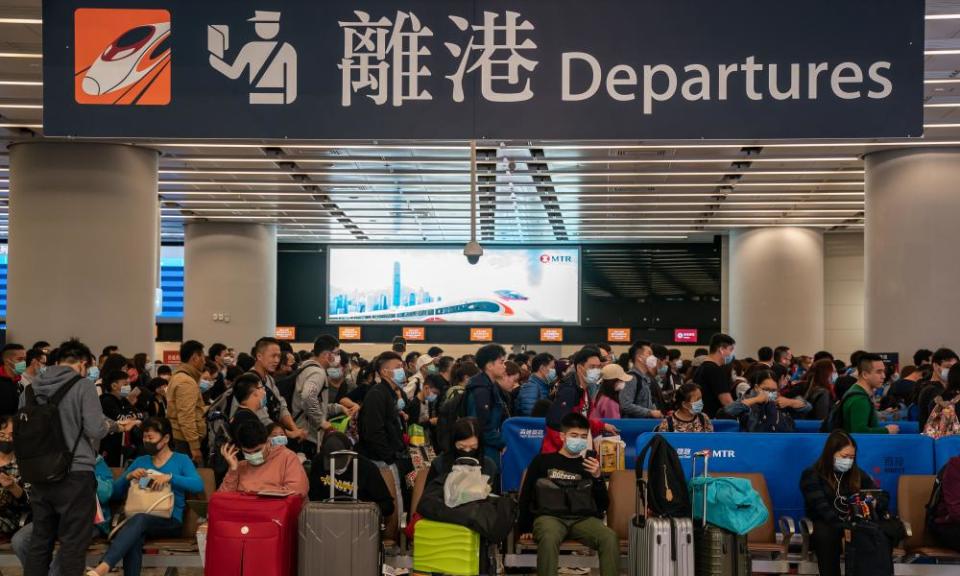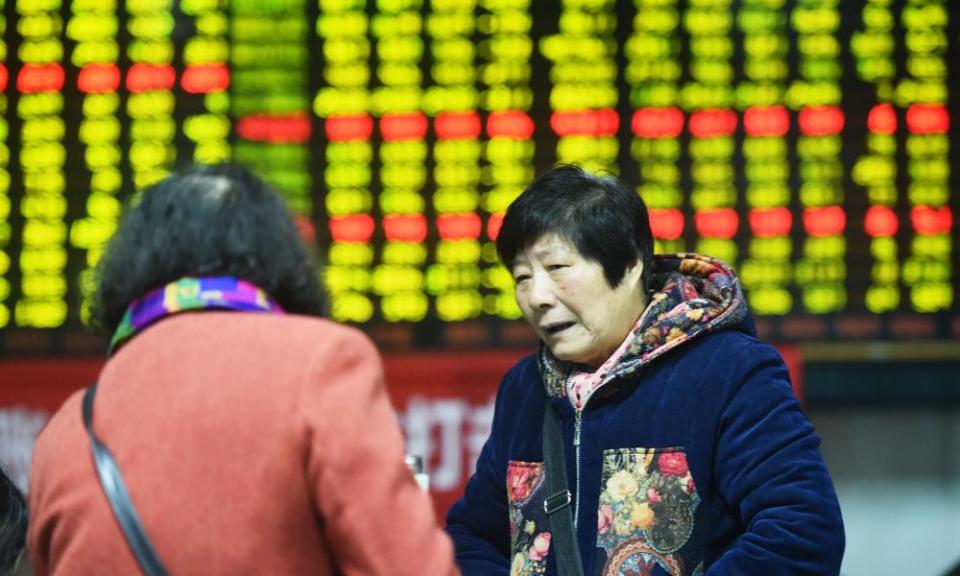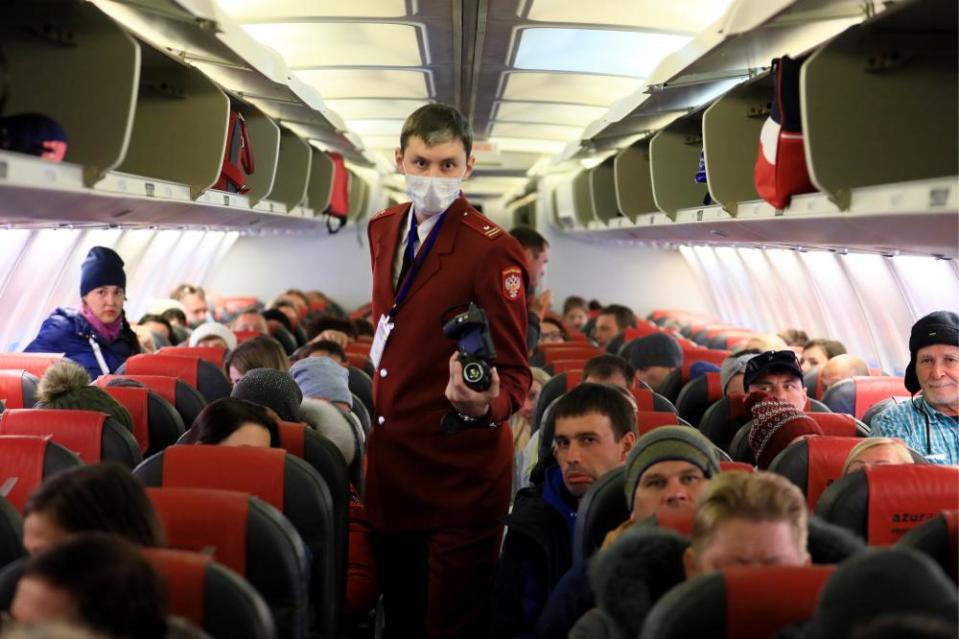World financial markets rocked by China coronavirus

Financial markets around the world have been rattled by the coronavirus outbreak, with its centre in Wuhan, a city known as the Chicago of China for its central location and booming car manufacturing industry.
Amid growing concern over the spread of the virus, China has put Wuhan and four other cities with a combined population of more than 20 million on lockdown. It has banned travel during the biggest mass annual human migration on the planet for the lunar new year this weekend, when up to 400 million Chinese are expected to travel across the country to celebrate with friends and family.
With outbound trains, buses and flights halted, fears are rising that the virus could also dent growth in the world’s second largest economy, in a rerun of the Sars outbreak of 2003. The first major deadly infectious disease of the 21st century infected up to 8,098 people worldwide and killed 774, spreading fear of fatal disease around the world and dragging down Chinese growth.
Almost two decades after becoming a member of the World Trade Organization, China is now far more important to the economic prospects of companies and countries worldwide.
As fears of a “black swan” event rise at a fragile time for the world economy, there was a sharp sell-off on Thursday, with markets in Hong Kong, Shanghai and Shenzhen down 2-3.5%.
On the London Stock Exchange, mining companies including Rio Tinto, Glencore and Anglo American were among the biggest fallers, amid fears that demand for metals and materials in China could falter.
The price of oil fell on international markets by 3%, while shares in hotel groups, airlines and luxury retailers – including Louis Vuitton, Gucci and Cartier – have all hit reverse.

The lunar new year on 25 January is typically a significant opportunity for European luxury brands. China represents 35% of global income in the sector, and analysts warned sales could be dented by the travel bans during the crucial two-week spending period.
Christopher Wood, an analyst at the US bank Jefferies, said the virus had potential to trigger further panic selling, adding: “Markets have started to try to price in the risk of this becoming a full-blown epidemic.”
If not contained, economists said tourism, retail sales and travel would be hit in next few months, while industrial production could struggle to recover after a slump at the end of 2019, amid the US-China trade war which has cut Chinese economic growth to its lowest level in 29 years.
George Magnus, an associate at the China Centre at Oxford University, said: “It’s coming at a very sensitive time for the Chinese economy. It looked as though at the end of 2019 the downturn in economic activity and unemployment had stabilised.
“The idea was that we would see a modest rise in economic growth in the first and second quarters of the year. That might not actually happen. It may cause stagnation around current levels of activity to continue.”
Wuhan is home to Dongfeng, one of China’s largest car manufacturers. As the capital and most populous city of the central province of Hubei, with a population of about 11 million, it produced roughly $224bn (£171bn) in GDP in 2018. While equivalent to the size of Vietnam or Portugal, it is little more than 1% of China’s total economic output.
Drawing lessons from the Sars outbreak, economists at the French bank Société Générale warned that economic growth would probably fall below 6% in the first quarter of 2020, down from a previous estimate of 6.1%, if the outbreak failed to stabilise by March. Consumer- and tourism-related sectors would be most affected, it said.
Sars caused an estimated decline in China’s GDP growth of between one and two percentage points, at a time when the country’s economy was much smaller but faster growing at the turn of the millennium.

Unlike the Wuhan coronavirus, Sars first hit the much more economically significant province of Guangdong and spread to Beijing – at a time when they accounted for a total of about 15% of GDP.
According to Société Générale, Sars caused visitor numbers to mainland China to plunge by 26% in the second quarter of 2003 from the previous three months, and by nearly 60% in Guangdong. Disruptions to normal production led to shortages of some products, including medicines.
However, as the spread of the disease was contained, the disruption to activity was short-lived. A strong recovery followed, raising hopes that the coronavirus may also have little lasting impact if it can be contained.
Seema Shah, the chief strategist at the fund manager Principal Global Investors, said memories of the impact could play havoc with market confidence, but should be kept in perspective.
She added: “It is too early to assess the potential economic impact of this outbreak. However, there is reason to hope that the impact of this virus will not be greater than Sars. China’s response has been considerably more proactive than in 2003.”

 Yahoo Finance
Yahoo Finance 